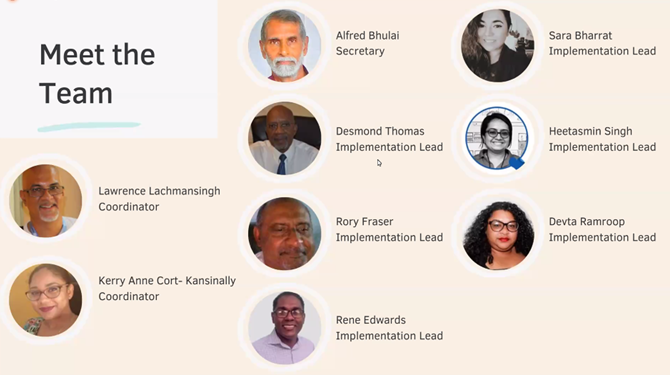A new civil society group that hopes to achieve significant electoral reforms before the next general elections was launched yesterday.
The launch of the Electoral Reform Group (ERG) comes against the background of Guyana history of contentious elections, including the controversies that attended this year’s polling, which saw a five-month-long delay in the finalisation of the results amidst efforts to manipulate the outcome.
Speaking during the virtual launch yesterday, economist Desmond Thomas declared that what occurred this year is not new. Guyana, he argued, has for years been in chronic electoral distress with persons refusing to accept the results every elections.
Thomas, who is one of nine implementation leads for the newly registered civic group, argued that the discovery of oil makes electoral reform and political transformation essential in order to achieve the unity and constructive engagement that is necessary for Guyana to do better.
While repeating arguments raised in his recent book, ‘Electoral System Reform for a Diverse Nation, The Case of Guyana,” Thomas touted the necessity of consensus for a successful reform process.
The group, it was explained, will spend the next year reaching out to the various communities to build partnership and reach consensus on what reforms are necessary.
Specifically the intention is to “foster and support a civil society dialogue process aimed at formulating an electoral reform proposal for legislation and execution by 2025,” he noted.
ERG seeks to build trust with various stakeholders and then through citizen inputs and the best practices of other countries facilitate national ownership for reforms as a means of assuring their implementation.
Responding to questions about the impact Guyana’s political culture and ethnic strife is likely to have on their efforts, media and communication lead Sara Bharrat explained that the group hopes to address this culture through its work.
“We need both [electoral reform and political culture change]… The objective of electoral reform is precisely to change political culture. The hope is to address ethnic insecurities in the engagement that leads to the design of reform… ERG’s goal is to achieve meaningful electoral reform for inclusionary democracy in the Cooperative Republic of Guyana through civil society dialogue process. We will do so by engaging all stakeholders,” she noted.
ERG is currently made up of nine implementation members and 30 extended members who support the group via donations of time and funds.
‘No silver bullet’
Coordinators Kerry Ann Cort-Kansinally and Lawrence Lachmansingh were keen to highlight that ERG does not have a “silver bullet” solution to Guyana’s issues stressing instead that the group hopes to engage at the “grass roots level” to understand and define the problems before they can discuss solutions.
Lachmansingh, a governance and conflict prevention practitioner, repeatedly noted that the group would go “first to the people,” while Cort-Kansinally a professional in geospatial analysis and project management, reminded that several countries regionally and internationally have undergone electoral reform and have consequently provided a significant amount of best practices which can be emulated.
They stressed that while political parties will necessarily be part of the reform process, they are not the only stakeholder whose interests and impact need to be considered.
Other members of the steering committee include former Head of Physical Sciences at the University of Guyana Alfred Bhulai, retired professor Rory Fraser, sustainable local and regional development and natural resources management practitioner, René Edwards; lecturer at the University of Guyana in the Faculty of Natural Sciences Heetasmin Singh; and Master programme Science in Environmental Management student Devta Ramroop.










